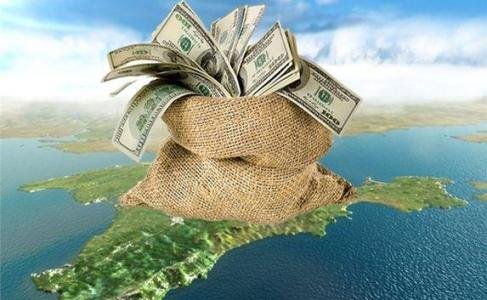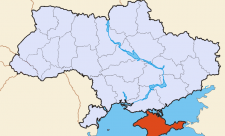 There are more than 2000 free economic zones (FEZ), by means of which social and economical problem of both national and regional levels are solved, in the modern world. In this context, Crimea is “twice” as lucky because not one but two free economic zones – the Ukrainian one and the Russian one – were created on the peninsula. However, in both cases future of Crimean economy in general and Crimean business in particular doesn’t bother lobbyists of these economical projects.
There are more than 2000 free economic zones (FEZ), by means of which social and economical problem of both national and regional levels are solved, in the modern world. In this context, Crimea is “twice” as lucky because not one but two free economic zones – the Ukrainian one and the Russian one – were created on the peninsula. However, in both cases future of Crimean economy in general and Crimean business in particular doesn’t bother lobbyists of these economical projects.
What is FEZ and how to treat it?
Free economic zones are certain territories with favorable conditions (of custom, tax, currency, visa kind) for national or foreign enterprises. In the modern world FEZ is a normal practice of business operations that most of the times is used for attraction of investments and new technologies. As a result, new enterprises are opened, unemployment reduces, the level of population’s prosperity grows gradually. It is beneficial both for business and the state. However, the Crimean situation is unique: the region is annexed by Russia, but while unrecognizing this action, the rest of the world continues to consider the peninsula as Ukrainian territory following the resolution of General Assembly of the UN. Russia and Ukraine create here their own free economic zone: one of them – on “its” territory, the other one – on the temporary occupied territory.
FEZ in the Russian way
For Russia the free economic zone “Crimea” is one of the most effective ways of economical development of the territory, which is disputable in the international legislative field, and the Russians didn’t fail to take advantages of that.
According to the federal law of the Russian Federation from November 29, 2014, the free economic zone “Crimea” rests on three pillars: favorable taxes called to encourage investment and new technologies flow; open ports mode (exemption from a range of port-charges and simplified procedures of cargo execution) and also simplification of visa procedures for tourists – the possibility to obtain short time tourist visas on site.
However, the first month of the law operation has shown that in reality it is not so cheerfully as it was on paper. Foreign investors do not hurry to come to the region, being afraid to fall under sanctions implemented by the UE and the USA in 2014. As Crimean statists of 2014 notes, a record-breaking investment bust by 76% was observed in Crimea. At the same time, the Virginian Islands and Guernsey that are world-famous off-shores, where 85% of all investments come from, started to take the leading positions. The favorable taxation will create additional preferences for them.
Pattern of FEZ participation: is it easy for Crimeans to receive preferences?
According to the Russian standard, pattern of FEZ participation grants notable incentives for business development in all the spheres except mining operations – the state is not going to share this profit. First of all, zero tax on income rate to the federal budget and not more than 13.5% rate to the regional one is provided. By the way, in Russia an average tax rate is 20%, 2% of which goes to the federal budget and 18% to the local ones. Secondly, free economic zone participants are exempted of estate tax (for 10 years) and land tax (for 3 years). Besides that, they acquire the possibility of duty-free entry of imported goods, component parts and equipment
Everything would seem to be good but in order to acquire the pattern of free economic zone participation it is needed to accomplish two crucial conditions besides paper-laden process. First of all, it is needed to prepare investing plan of development for a period not less than 3 years. Secondly, it is needed to be able to make placement of funds to the extent from 3 MIO (from small and medium business) to 30 MIO RUR for all the rest. But it is not so easy to accomplish that. As the director of the Saki milk-processing factory Yuriy Obolentsev noted: “It is very hard to obtain pattern of an enterprise working in the free economic zone. All the documents require the “far-distance view” and now no one plans anything at all in Crimea, so we can not take advantage of that (the possibility to enter the FEZ – Editor’s note). The member of the Public Chamber of Crimea, chairman of the management board of PJSC “Plant “Fiolent” Aleksey Batalin was even more judgmental saying: “Crimean enterprises are left without possibility to work because of those laws that operates in the Russian Federation… For those who come from the mainland (the mainland of Russia – Editor’s note) everything is beneficial.”
Ports and tourists
The situation with ports is also not completely clear: porto-franco mode was implemented but no fleet of vessels in not observed in Crimean harbors. It’s understandable – the West implemented sanctions and is not going to cancel them. Economist Vadim Stetskiy, the chairman of the board of the civil organization “Dobrobut” thinks that this mechanism would hardly allow to completely bypass the regime of sanctions.
“Sure, there is a possibility to bypass sanctions, but it will deal with activities of off-shore companies and those countries that didn’t support sanctions against Crimea,” the expert says.
The third pillar is the tourist sector, which is also far from records. Tourists aren’t eager to visit the “dangerous” region: who knows in what country you can awake in the morning. So, it turns out that there is a law, but there is no use of it for Crimea and Crimeans so far.
FEZ in the Ukrainian way: business is in the highest consideration
Law on free economic zone: policy vs economy
The Ukrainian law on the free economic zone “Crimea” was adopted on August 12, 2014, and was signed by the president very fast, although it became public only by the end of September. Particularity of the law is that it is supposed to operate on the temporary occupied territory, where Ukraine can not implement it de facto. This is why, according to the expert Vadim Stetskiy, this document is more of political nature, rather than economic one.
“Today it is possible to estimate only political benefits for the Ukrainian state due to adoption of the law on free economic zone “Crimea”, by means of which legal mechanisms for evacuation of citizens and business and also rules of business functioning in the occupied territories were established, although realization of these regulations is rather challenging under the conditions of collision of legal regimes of two conflicting states,” Stetskiy believes.
Preferences in the Ukrainian way
So, what does the Law on FEZ that already received tons of brickbats from Ukrainian experts offer? Without touching issues of forced migrants, let us focus only on subjects of economic nature.
First of all, in the territory of FEZ implementation of a special legal regime in regulating, tax, customs and migration spheres is foreseen. Functioning of the free economic zone should be provided by a State management company FEZ “Crimea”, which had not been created despite the fact that the law have been operating for half a year.
Main preferences for business can be lead to three pillars that are different to the Russian variant: exemption of taxpaying, possibility of shipment of Crimean products to mainland and even its export, and also benefits by transferring of a business to the mainland (tax debt relief and affiliation cost of move to expenses). Issues of evacuation and tax relief are quite logical: the state has to help anyone who wants to transfer business and refuse from collection of taxes if it can not provide their collection. As a result, de-facto two options are offered to the Crimean business: either reregister on the mainland, or tax relief in correspondence with Ukrainian laws and free floating in the Russian environment. In this regard, all legal entities that are registered in Crimea receive non-resident status that transfers any relationships with them at the external-economic level. As a result, according to Stetskiy, “when organizing import-export operations with Crimea, Ukrainian business owners faced with a lot of difficulties, for example, when it came to passing the boarder.”
Crimean products for export
Possibility of free shipment of products of Crimean manufacturers not only to the mainland but also outside of Ukraine is the biggest point at issue under the condition of obtaining of all relevant Ukrainian certificates and paying custom duties. A logical question raises here: what enterprises does it concern – Ukrainian or “Russian” ones? It has to be admitted that there is very little of Ukrainian business left in Crimea: part of assets have been nationalized, some enterprises has reregistered willingly according to the Russian legislation. Few of those that kept Ukrainian registration are in tenterhooks, not knowing what is waiting for them in the nearest future. As the result, Crimean “Russian” enterprises will also be able to use the export preferences of this law using the non-resident status. In this case, nebulosity of wording corresponds not to the European approach to legal acts, but rather vice versa, the Russian option that has already drew the mouth – “one law for the reach and another for the poor” – wins.
Ukrainian exporters: double profit from occupation
Perhaps, Ukrainian exporters that trade with the peninsula and the mainland part of Russia through it (already with assistance of local companies) gain the biggest profit. First, they gain profit because of the trade itself, considering that prices in Russia are higher than in Ukraine. On the other side, as participants of the FEZ, they are supposed to receive refund of VAT. At the same time, transportation of goods to Russia through Crimea is safer than through Donetsk and Lugansk.
So, by the different approaches to the free economic zone, both projects turned out to be similar – as a rule, big business receives profit. Both the Russian one that can afford investing into Crimean enterprises and the Ukrainian one that acquires possibility of gaining good dividends from the import and export operations. And also the Crimean one that will be able to withdraw capital through off-shores.












